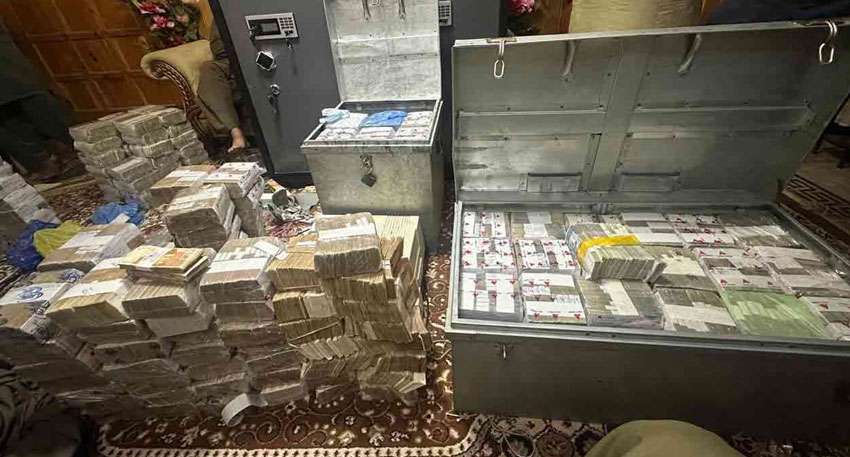
According to sources, the accused are involved in money laundering, fake cheques, and embezzlement through fake accounts. Official documents reveal that the District Accounts Officer played a central role in the scam, allegedly misusing public funds in collaboration with the Accountant General s office.
Investigations indicate the suspects committed large-scale fraud through fake billing and bogus construction companies, siphoning off billions. More arrests are expected as the probe deepens.
Read More: DPO Hafizabad luxurious office video sparks public criticism
So far, NAB has recovered and seized assets worth Rs. 25 billion in connection to this case. The bureau has also recovered over Rs. 1 billion in cash, foreign currency, and more than 3 kilograms of gold. Additionally, 73 bank accounts across various commercial banks have been frozen, with balances exceeding Rs. 5 billion.
NAB has seized 77 luxury vehicles and taken control of 109 properties in cities including Islamabad, Rawalpindi, Peshawar, Abbottabad, and Mansehra. The seized properties include:
· 4 farmhouses
· 12 commercial plazas
· 2 commercial plots
· 30 houses
· 12 shops and food courts
· 25 apartments and penthouses
· 175 kanals of agricultural land
The estimated value of these properties is around Rs. 17 billion.
Sources confirm that more high-profile arrests are expected in the next 24 to 48 hours, as preparations are already underway. This massive fraud was carried out with alarming boldness and coordination, involving corrupt officials, greedy contractors, complicit bank officers, and others.
In a significant development, NAB has also arrested contractor Muhammad Ayub, whose account received a suspicious transfer of Rs. 3 billion.
The scandal has sparked serious concerns about oversight, with critics highlighting how billions were siphoned off without alerting any financial monitoring institutions.
